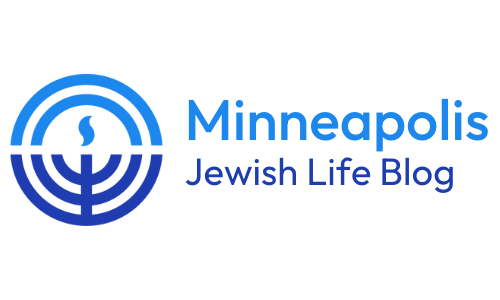Tikvatenu II: Kibbutz Holit
Tikvatenu II participant Jacy Grais shares her experience from the second day of their journey in the South of Israel as they visited Kibbutz Holit, Minneapolis Jewish Federation’s partner in Communities2Gether.
Jet-lagged and out of sorts, I was still processing my arrival to Israel as we set out towards Kibbutz Holit early this morning. This was after a dinner with representatives from Minneapolis' partnership city of Rehovot who shared with me how they have (and have not yet) processed 10/7 and some of the ways their lives have since changed in small and big ways.
After being on the ground merely hours, it was clear that every person in this small nation has been deeply personally affected by October 7 and the ongoing war, and everyone has a story. It was also apparent that the connections to victims are of an order of magnitude tighter and closer than those felt by most Americans after 9/11 or any wars the US has fought in my lifetime.
Our first stop of the day was Kibbutz Holit. Why? In the winter of 2024, recognizing a need for greater partnership and support for many suffering communities in southern Israel, the Jewish Agency for Israel initiated Communities Together, pairing 18 hard-hit Israeli communities with an American city to restore and rebuild. Several families from Kibbutz Holit have relocated to Minneapolis' partnership city of Rehovot, creating a natural connection for Minneapolis and Holit.
Holit is a small kibbutz of 200 people, 15 of whom were murdered on October 7, and three of whom remain in captivity in Gaza. It is idyllic and beautiful, but bruised and battered by Hamas and from lack of attention over the past nine months since its members fled the region. It, and its residents, have stories to tell. Nitzan, a longtime resident who is a descendant of Holocaust survivors, is now the orchard caretaker, having taken over the role in honor and memory of his friend, the prior caretaker who perished on October 7.
Nitzan shared that in the early morning of October 7, he saw terrorists standing outside his front window and sprung up, scaling the outside wall of his house to the flat roof above his bomb shelter, where he laid still for 12 hours until IDF soldiers arrived to help.
The Holit gardens, overgrown with weeds, told stories of their own suffering in a way that only nature can. As helpless as I've been feeling, pulling weeds with our group to clean the gardens felt productive and therapeutic; using supplies provided to Holit by MJF made it all the more meaningful. In talking to the few residents who have returned, I felt sure that the entire Kibbutz - people, gardens, buildings, will again thrive; its residents are resolute that it must, and Minneapolis gets to be part of that story.
In the evening, we met with and cooked dinner for a group of soldiers. These young men were busy with their jobs, studies, families, and hobbies in the fall of 2023. They walked away from regular life to join the reserves and defend their country in a war it did not start or want. One soldier shared that our stories are intertwined, and our strength is interwoven.
Throughout the day, I saw and heard about resolve and resilience of individuals, communities, and the people as a whole. I got a small glimpse into stories of adaptation, bravery, strength, and gratitude. I'm ending the day with a bucket full of thoughts and feelings that I haven't fully sorted through, but prominent among them is immense gratitude for the people here. Am Yisrael Chai!

